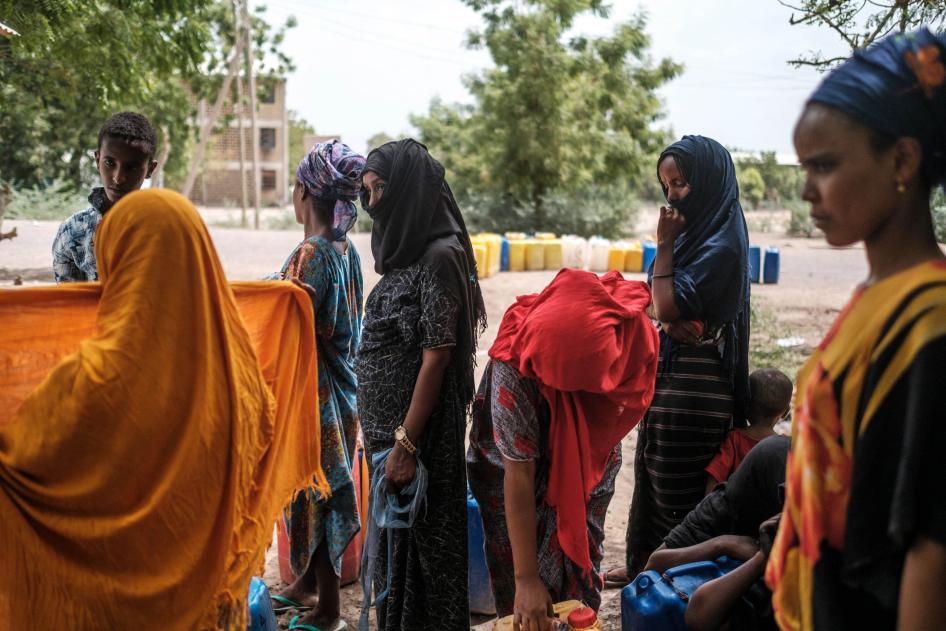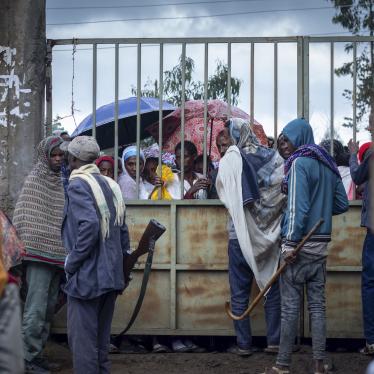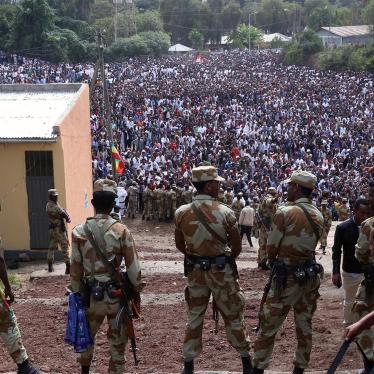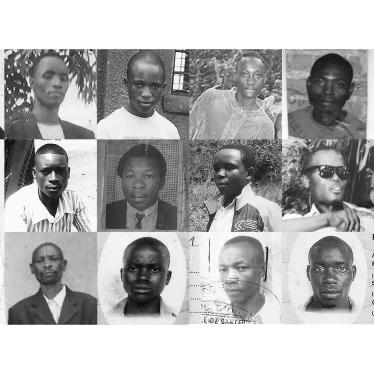(Geneva) – The European Union and its members have backtracked on their support for continued international scrutiny of the human rights situation in Ethiopia at the United Nations Human Rights Council in Geneva, Human Rights Watch said today. Countries had until October 4, 2023, to propose a resolution at the current session of the council, which ends on October 13.
On October 3, the council-mandated inquiry, the International Commission of Human Rights Experts on Ethiopia (ICHREE), issued its latest report and concluded that “all … of the Common Risk Factors for atrocity crimes are present in Ethiopia.” The experts also highlighted the important prevention role the Human Rights Council can play and recommended continued international scrutiny and independent investigations into past and ongoing violations.
“European Union members abdicated their responsibility to ensure international scrutiny of grave abuses in Ethiopia by failing to renew the expert commission,” said Tirana Hassan, executive director of Human Rights Watch. “For the numerous victims of atrocities in Ethiopia who placed their hopes in the Commission, this is a devastating blow.”
Since the outbreak of conflict in northern Ethiopia in 2020, the EU has been at the forefront of the fight for justice and accountability for abuses by all sides, stating early that this would be one of the prerequisites to any return to normal relations with Ethiopia. The EU led the resolution establishing the expert commission in December 2021 and the renewal of its mandate in September 2022 in the face of aggressive opposition by the Ethiopian government.
In a December 2022 statement on behalf of the EU, the EU high representative noted that the gradual reestablishment of the full spectrum of EU’s development cooperation and economic support would be tied to “[c]oncrete progress on the implementation of the ceasefire, unimpeded humanitarian access, and accountability for International Humanitarian Law and human rights violations and abuses.”
In a trip to Ethiopia in January, the foreign ministers of France and Germany again stressed to Ethiopian authorities the importance of accountability.
Since the commission was established, the Ethiopian government has repeatedly sought to avoid scrutiny by hampering its work. In March, Ethiopian authorities threatened to introduce a resolution at the Human Rights Council session that would have prematurely terminated the ICHREE halfway through its mandate. In response, the EU, the United States, and other governments previously pushing for independent investigations increasingly expressed support for the Ethiopian government’s initiation of consultations on transitional justice.
The commission has consistently spelled out the limited prospects for accountability at the domestic level. It said the government has “failed to effectively investigate violations and has initiated a flawed transitional justice consultation process” that “falls short of African Union and international standards,” while seeking “to evade international scrutiny through the creation of domestic mechanisms ostensibly to fight impunity.”
The human rights situation in the country has deteriorated since March, Human Rights Watch said. Clashes between the Ethiopian military and the local Fano militia, which broke out across the northern Amhara region in April, escalated in August. The government then imposed a sweeping state of emergency in the region, which the authorities are using to arbitrarily detain people elsewhere in the country.
The commission reported unlawful killings, mass detentions of Amhara people, and at least one drone strike that killed and injured Amhara civilians. The group also raised concerns about continued violations in Tigray and rising abuses in the Oromia region.
Human Rights Watch and other civil society groups urged the EU and Human Rights Council members, including within the African Group, to renew ICHREE’s mandate, or at least act upon its recommendations to continue independent investigations into past and ongoing violations and abuses, to monitor the creation of accountability mechanisms, and to report publicly on violations.
While the EU circulated a draft resolution on Ethiopia to EU member states, the proposal never moved forward. Neither France nor Germany, both council members, made serious diplomatic efforts to mobilize support to renew the commission or to create any alternative follow-up monitoring mechanism, despite their proclaimed commitment to accountability. Other Human Rights Council members such as the US and African Group states also did not act in response to the ICHREE report.
“Ethiopia’s partners have allowed Ethiopia to drop off the Human Rights Council’s agenda despite the resumption of violence and the complete failure to address accountability,” Hassan said. “The EU’s inaction and lack of leadership for victims of serious crimes in Ethiopia will undercut its credibility as a proponent for justice around the world.”
|
News Release
Human Rights Council: EU Fails Ethiopia’s Victims
No Action Following Scathing Report Highlighting UN’s Prevention Role
Your tax deductible gift can help stop human rights violations and save lives around the world.
Tags
Topic
Most Viewed
-
June 3, 2025
“They’re Ruining People’s Lives”

-
January 25, 2024
“We’re Dying Here”

-
November 25, 2019
A Dirty Investment

-
April 27, 2021
A Threshold Crossed

-
November 19, 2012
Losing Humanity




